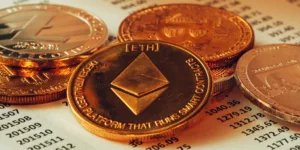Picture this scenario: you have a brilliant idea for a decentralized application that will allow artists to maintain more financial control as their work is distributed. You know that this idea will empower artists across mediums who have long struggled with the dueling conflict of widespread distribution versus ownership and financial control.
Next you decide that you must launch an ICO to gain funding to bring the development of your decentralized application to life. So then, ICO databases and submit a brief description of your vision, technical implementation, and roadmap. At this point, you should be well on your way to receiving the funding your project needs, right? Well, actually no — not even close.
Although ICOs received an early rep as fast and easy fundraising mechanisms, it has become increasingly more difficult to attract investor attention and successfully facilitate a coin sale.
The landscape has matured,and any hopeful crypto entrepreneur must take this maturation into consideration before attempting to appeal to cryptocurrency advisors and investors. If an ICO entrepreneur fails to ask and honestly answer these questions, they risk receiving poor ICO Reviews, which will be difficult to bounce back from — even if the technical shortcomings are eventually addressed.
If you are interested in launching your own ICO, here are six questions you must know the answer to before setting a sale date.
Who are my team members? The team that you’ve chosen to surround yourself with will be the most crucial evaluation point for more investors. Like VC investors, ICO investors want to see listings with strong teams behind them. Amassing a group of experience professionals with different, but complementary skill sets, is the only real shot any crypto entrepreneur has of successfully bringing a decentralized ideation to life.
In addition to skill and background, it’s also important to compile a team of passionate individuals who believe in your vision. A talented but disinterested developer is less valuable to you than a growing but passionate one. It takes a certain level of scrappiness to bring launch a new company, especially a new company within a relatively new space, but the right team dynamic can rise to that challenge.
What is my timeline? After your sale, and assuming that your fundraising goal has been met, what will you do with the finances? How long will it take you to complete product development? Beta testing? When will actual users have access to the technology? These are all questions that can be answered in your roadmap. Of course, as any ICO entrepreneur can attest, agility and adaptability are important, but coursing a rough timeline will keep you and your team on track, and answer any investor questions about the amount of time needed to launch.
What is my community-building strategy? While people are the most important internal factors, they are also one of the most important external factors. Community building has become an essential marketing component across the ICO space, because so many intrigued crypto audience members and potential investors are turning to forums, social media, and messaging apps like Telegram to ask questions about the specifications behind an upcoming sale.
Creating a dedicated strategy for answering questions and engaging with community members could spell the difference between an ICO with little to no awareness and an ICO bolstered by community hype.
Who are my advisors? There is so much uncertainty plaguing the ICO landscape. But one of the best ways to reverse these trust issues is to get individuals on your side who can vouch for your. By signing on advisors, you are essentially communicating to investors that your team and technology have been vetted, and these successful individuals believe in its viability. Furthermore, investors may also introduce you to key contacts who can either help you build a portion of your business or invest in it.
What are the terms of my token sale? Some of the first questions potential investors may ask are focused on the terms and conditions of your sale. The terms and conditions act as a pledge, or mutual understanding, between all committed investors and the company. The terms and conditions typically include the price and timing, as well as the subsequent actions the company will take with the funds raised.
Do I need legal counsel? In a similar vein to clear cut terms and conditions, you may need to seek outside legal counsel before announcing a coin offering. While regulations have not been set in stone, it still is wise to obtain the second opinion of a lawyer. The rules and standards may be subject to change, but lawyers can still help first-time crypto entrepreneurs ensure that their sale is structured correctly to avoid any future questions regarding liability.








